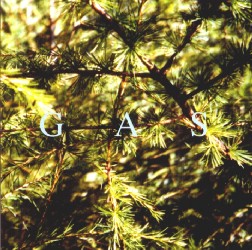
Wong Kar-Wai, "2046"
One of this site's guiding principles is to avoid posting entire albums. The reasoning behind this is evident in its exceptions. An entire album may be posted without derision or scorn here only when it is out of print or otherwise difficult to obtain. Or, lastly, when it is really important to do so. Because music, the most incorporeal of the arts, not only sooths beasts, on humans it can as well compel and possess.
Inundated as we are with dystopic images of future days, it was striking to watch the future-segment of "2046" and encounter a tomorrow that seemed beautiful, naive, decadent, suffused with the neon streaks of an opiate light. Not a political warning or cultural satire, or PKD-style engagement with the schizo-dissociative powers of technology, just a completely oneiric escapist fashion-magazine spread, one that produces a radiant digital narcosis.
So here now are three works that can be said to intersect with such a dose of bright tomorrows:
Gas - Pop
"I believe in the signal of the bass drum. It it the heartbeat of my life." - Wolfgang Voigt, aka Gas, Mono.Kultur #08
The real name of ambient-techno artist Gas is Wolfgang Voigt. Voigt is the co-founder and co-owner of Kompakt records, and is a highly influential and prolific electronic musician.
There's much that can be said about the maternal heart-pulse of the techno bass drum, and as well for the warm, pulsating, embryonic womb that the well sound-system'ed club attempts to emulate (Fabric Room One, for example). This sound is compelling enough that it can keep me in its sonic amniotic suspension for minutes at a time, until the spell is broken and I am reminded that I'm in a weird dingy club in the immediate vicinity of NYU, surrounded by total randos.
A new luxurious Gas boxed set will soon be released, meaning that technically Pop still remains out of print, and well within an acceptable domain of full-album posts.
As for a description of this record, we would be hard-pressed to beat Voigt's own, from the same interview:
"I had an image in my mind of a gaseous and nebulous sound, of an exhilarating streaming music which literally flows over, which has no beginning or end no hard edges, only softness. My association was this music drifting through the coppice of a misty wood in vast sound spheres, a very elegaic sound repeated over and over in the far distance, held together by an invisible bass drum that comes marching by somewhere hidden in the woods coming closer and fading away again."
It's an amazing sunday sunset record, preferably one of those hazy interminable twilights, one of those blue-gray and feathery evening come downs.
In a sense, The Field is a kind of punk reduction of Gas's near-classical sense of dynamics and ornament - The Field takes up this loop-based ambient techno approach and fidelities it way down, brutes it up, takes it from the Germanic sylvan idyll and kicks it back into the city streets.
Manuel Gottsching "E2-E4"
So in the case of these records, geography is everything. Gas is the Germanic sylvan idyll, when you're out stamping in boots for boar among the brush.
e2-e4 is a beach record. Recorded in 1981 in Berlin on a two-track in one take by Gottsching, guitarist for supreme face-melters Ash Ra Tempel, it effectively helped invent techno music. It consists only of an unspooling of an infinite synth, and the soaring, tremulous clusters of an electric guitar windblown across the waters. Like Gas, it doesn't ever seem to be going anywhere, but unfurls blissfully in place. Again, the timelessness of the womb, the sublime "oceanic feeling" that Freud describes in Civilization and Its Discontents.
E2-e4 is often regarded as a founding track of Balearic, which is an extremely broad dance category, but generally associated with electronic beach beats. It covers everything from trippy yacht disco to the filth enjoyed by the worst baggy bepanted pill poppers the imagination can conjure.
The Guardian ran this article on the Balearic resurgence a few months ago. The descriptions of the DJing style parallel those describing Baldelli's sets at Cosmic, which marked the birth of 'cosmic disco': slow (11obpm or so), eclectic, an emphasis on experimentalism and texture.
http://arts.guardian.co.uk/filmandmusic/story/0,,2253890,00.html#article_continue
Vangelis - "Memories of Green"
The original version of "Memories of Green", which would later appear in rerecorded form on the Blade Runner soundtrack, here taken from Vangelis' 1980 album, See You Later. The soundtrack's voluptous digital sheen is absent here, leaving behind the hairier, lower-fi predecessor.
Sunday, April 27, 2008
Smooth Sciences: An Introduction
Subscribe to:
Post Comments (Atom)



1 comment:
Predictably, I ride for e2-e4. However, I've never really thought of it as a beach record. But now that I have, you just made my summer. Thanks again AC.
Also, Gas is incredible.
Post a Comment